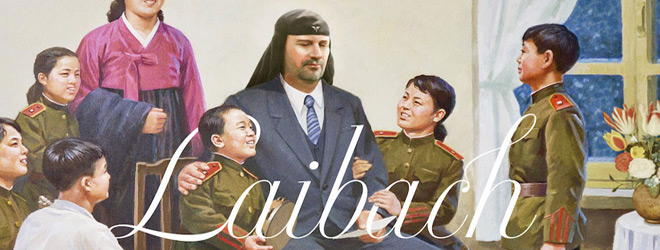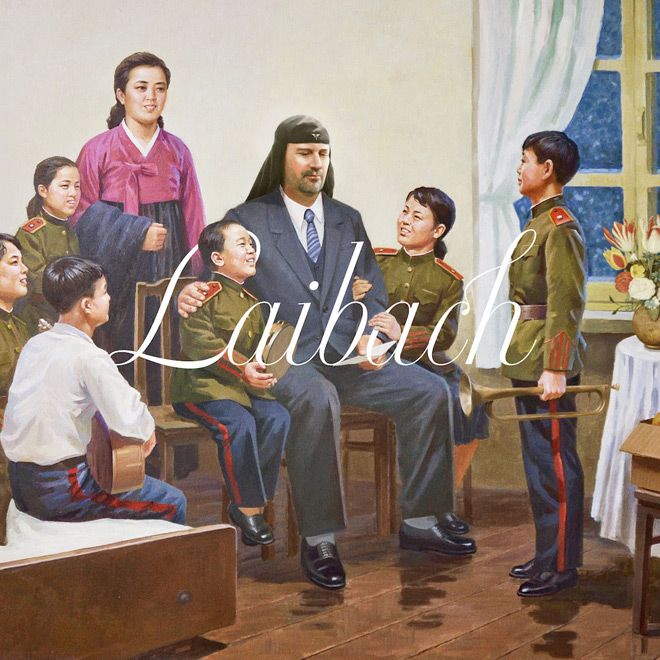
Founded at the dawn of 1980s, in Yugoslavia, now turned Slovenia, Laibach turned on audiences with their Avant-Garde style featuring an Industrial overtone that is often wild oddly. Singing in both German and English, while releasing a bundle of original material through the years, they have also been known to cover everything from The Beatles to National Anthems of different countries. Speaking of which, they are set to release their latest cover album, The Sound of Music, on Friday, November 23, 2018 through Mute Records.
An interesting band within itself, once adapted and familiar with what Laibach is all about, it is time to sprinkle in some bold, two-sided politics into the mix. An aspect of their style not it be overlooked, it not only has caused controversy, but has confused the masses on its intent due to the circular experimentation. Upon further study of the band’s political exploitation methods it can be concluded basically as schtick that they can twist, turn, and conquer into a quite comically disturbing rendition despite its elegant musical structure.
Which leads us to The Sound Of Music, their first cover album since 2008’s Laibachkunstderfuge, the new offering’s title features odd covers from the 1965 classic American film’s soundtrack including “Do-Re-Mi,” “Favorite Things,” with a twist on “Maria,” calling it “Maria/Korea.” In addition to a string sextet and children’s choir for live performances of this album, guests include Boris Benko (Silence) and Marina Mårtensson on vocals amidst the core of Laibach; Vocalists Eber, Salinger, Dachauer, and Keller.
In addition, The Sound of Music has a rendition of an unofficial North and South Korean anthem, with “Arirang,” before ending with “Welcome Speech” from Mr. Ryu of the DPRK’s Committee for Cultural Relations as he labels Laibach a “terrible Rock group” that is out to destabilize North Korea’s economic system.
Trying to grasp the concept, message, and purpose of a Laibach album in general is not easy, but to introduce yourself to Laibach with The Sound Of Music is certainly not the wisest choice. However, after careful analysis, it is a clever choice as a concept in relation to its political under-current and the execution is witty as well as creative. As far as being a lively album, as a whole, this one is much more subtly orchestrated in a somber way that seems to imply a corruption of innocence and youth. With the great mixing of cultures and exploration of some different Korean instruments, as heard on “The Sound of Gayageum,” Laibach really fall out of their own comfort zone, one which usually is all over the map to begin with.
The walking contradictions and crossover ideologies make a bold and again comical statement which Laibach continually excels at. Although The Sound Of Music may not be a multi-play home entertainment kind of album, it surely does make for a creative and exploratory experience. For fans of Laibach, it is recommended to enter listening to The Sound of Music with an open mind due to its oddities of another somewhat subtle but shocking style change. For all of the above, Cryptic Rock gives this multi-layer cerebral adventure 3.5 out of 5 stars.






No comment